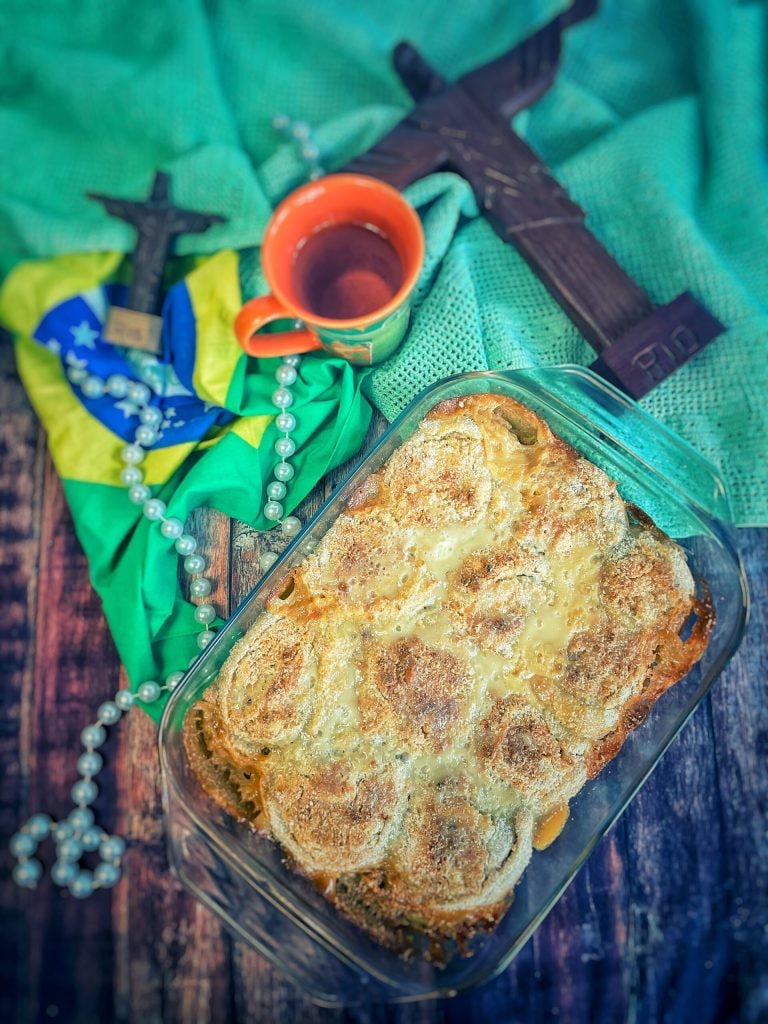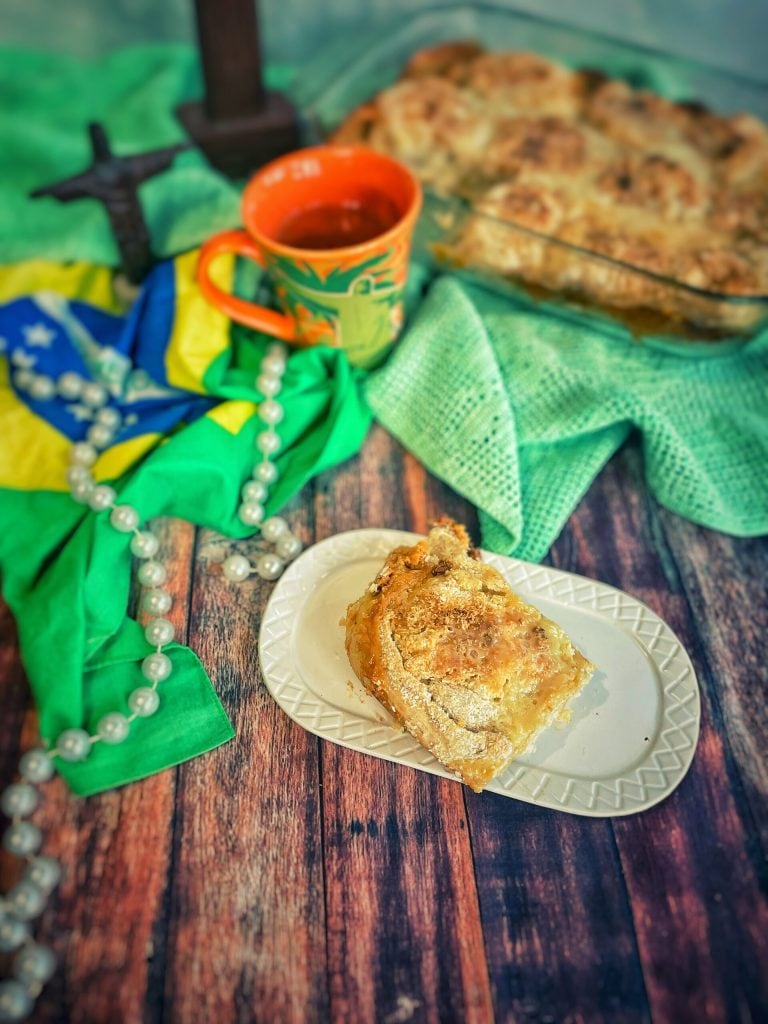The Forrobodó is a type of traditional sweet bread from Brazilian cuisine, particularly popular in the northeastern region of the country, filled with coconut and condensed milk.
The recipe for the Forrobodó “rosca” (rose) originates from indigenous and African cuisine, which has greatly influenced Brazilian gastronomy, and consists of wheat flour, sugar, eggs, milk, margarine or butter, yeast, and salt.
Prepare the dough and let it rise for about an hour.
Then roll it out on a floured surface and fill it with the grated coconut and egg mixture, then roll it up and cut it before baking with condensed milk.
The recipe is dedicated to the Italo-Brazilian singer Gaia and her song “Chiamo io, chiami tu” presented at the Sanremo Festival, for the Festival Menu 2025.
Similar to another recipe on the blog from South America:

- Difficulty: Medium
- Cost: Cheap
- Rest time: 1 Hour
- Preparation time: 10 Minutes
- Portions: 12 Pieces
- Cooking methods: Oven
- Cuisine: Brazilian
- Seasonality: All seasons
Ingredients
- 26 oz flour
- 1 1/4 cups water (or milk)
- 5 oz butter (or margarine)
- 1 egg
- 4 oz sugar
- 1 tsp baking powder
- 1 pinch salt
- 5 oz grated coconut (shredded)
- 3 1/2 oz sugar
- 2 eggs
- 2 1/3 cups condensed milk
Steps
For the dough: mix the flour with the water (or milk) where the yeast has been dissolved with 4 oz of sugar. Add the butter, 1 egg, and a pinch of salt.
Work the dough and let it rise for 1 hour, covered.
Roll out to form a 24×16 inch rectangle.
For the filling: mix the coconut with 3 1/2 oz of sugar and add the eggs.
Distribute the filling over the dough and roll it up.
Cut into 3/4 inch slices and place each “rose” next to the other in a baking tray.
Bake at 350°F for 20 minutes.
Cook the condensed milk for 5 minutes, then spread over the dough and bake in the oven for another 10 minutes.

FAQ (Questions and Answers)
What is the forrobodó?
Forrobodó – Burleta de costumes cariocas is an operetta in three acts with text by Luís Peixoto and Carlos Bittencourt and music by Chiquinha Gonzaga.
The first performance took place on June 11, 1912, at the Teatro São José in Rio de Janeiro.
Forrobodó means dance, low-budget night.

